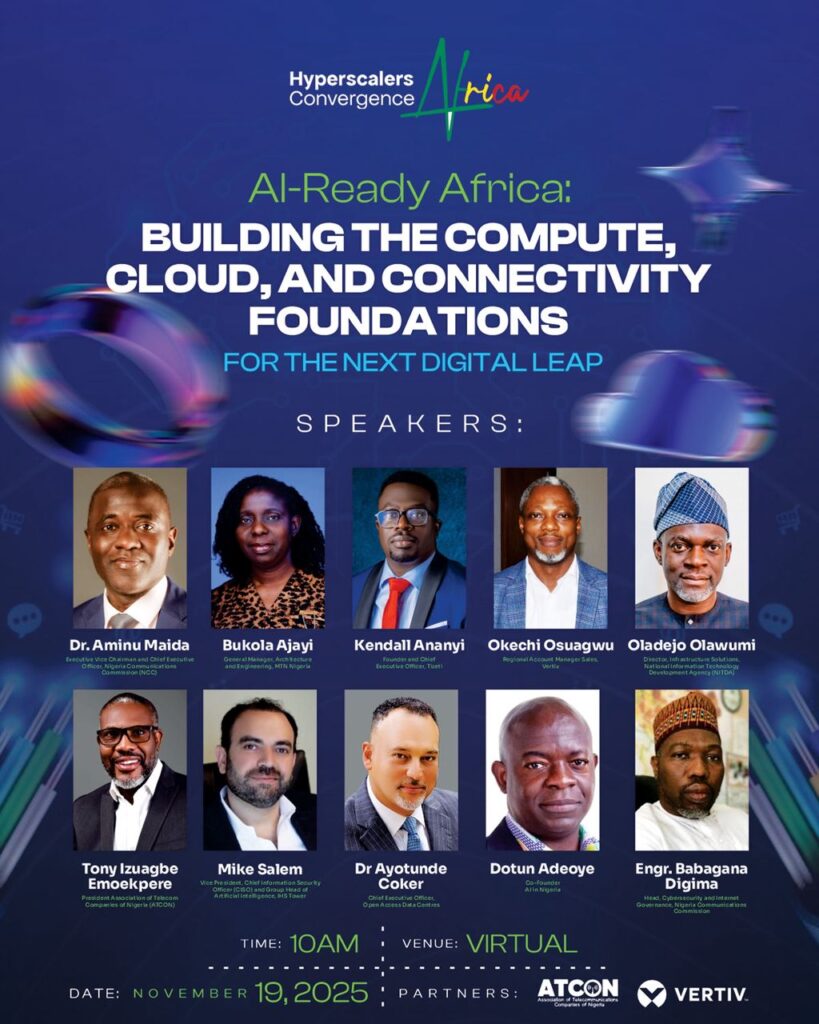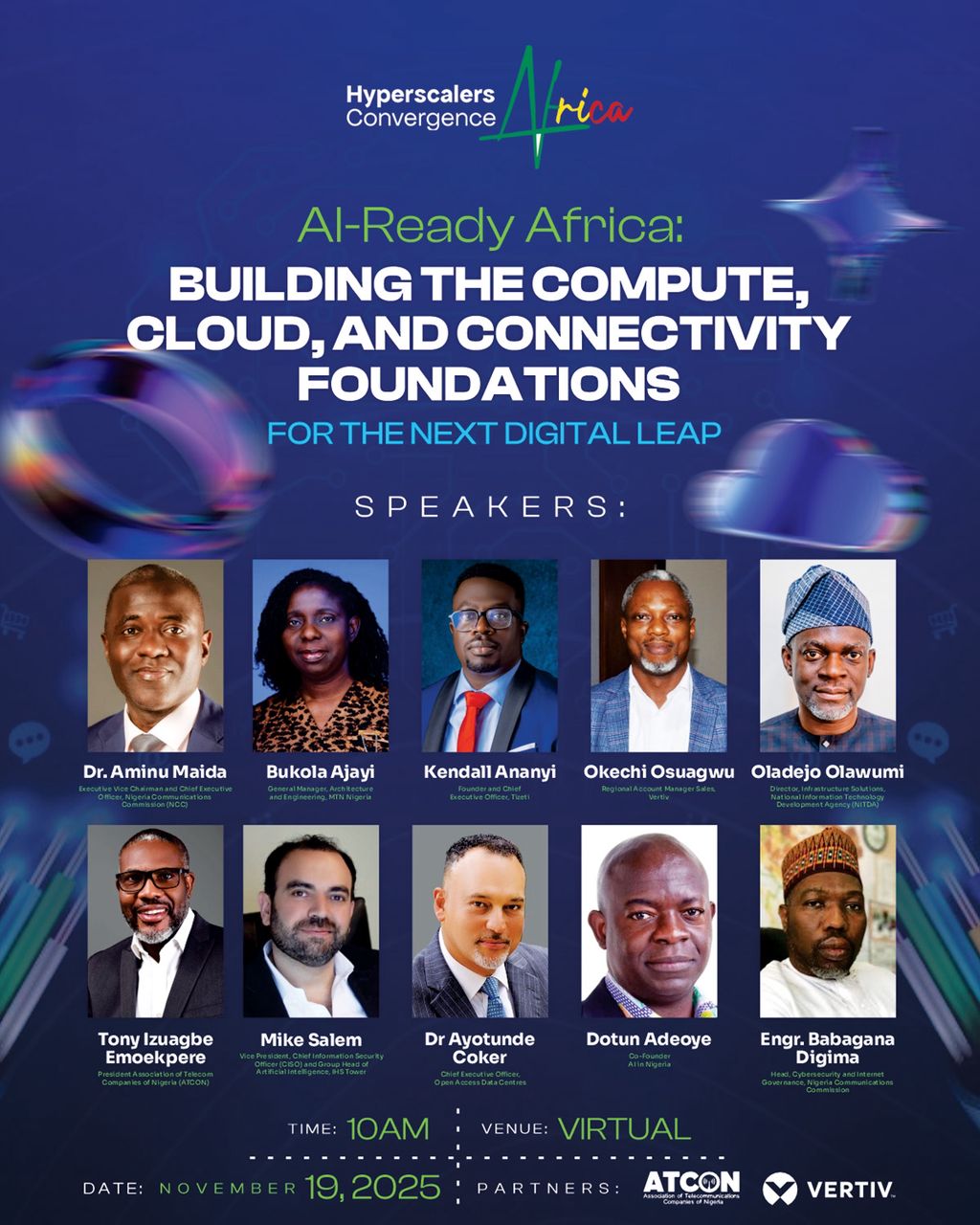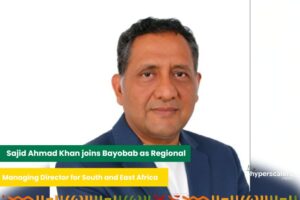Africa Hyperscalers convened a high-level virtual forum that brought together the most influential voices shaping the continent’s digital future — from national regulators and telecom operators to cloud providers, hyperscalers, data center executives, and frontier technology leaders. The session examined, with uncommon clarity and urgency, what Africa must build to compete in an AI-driven world, spotlighting the foundational pillars of compute, cloud, connectivity, power, governance, and talent as the engines of the continent’s next phase of digital competitiveness.
Delivering the keynote address, themed “AI-Ready Africa: Building the Compute, Cloud, and Connectivity Foundations for the Next Digital Leap,” Dr. Aminu Maida, Executive Vice Chairman and Chief Executive Officer at the Nigerian Communications Commission (NCC), stated that AI has become “part of the basic infrastructure of competitiveness, just like roads, power, and ports.” He emphasized that countries that build the right foundations “will unlock new productivity, new jobs, and new opportunities,” while those that do not “will find themselves consuming other people’s innovations instead of shaping theirs.”
The NCC boss highlighted the compute divide, the algorithmic divide, and the data divide as Africa’s most urgent gaps. “We risk being stuck as AI consumers, not AI creators,” he said, emphasizing the importance of locally governed data and African-relevant models. He reiterated the NCC’s commitment to connectivity expansion, open-access frameworks, cloud adoption, data center development, cybersecurity, and adaptive regulation, noting that “the digital future is a shared future.”

In his keynote on “The Future of AI in Telecoms – Opportunities and Challenges for Nigeria”, the Association of Telecommunications Companies of Nigeria (ATCON)President Tony Izuagbe Emoekpere underscored the scale of change ahead, noting that AI is no longer theoretical in telecoms. He highlighted opportunities in predictive maintenance, smarter customer engagement, network optimization, and operational intelligence – while calling for stronger industry coordination to accelerate adoption.
After Vertiv’s presentation on AI-ready infrastructure solutions, the keynote panel -themed “Building the Right Infrastructure for AI-Driven Telecom Networks” and moderated by Dr. Ayotunde Coker, CEO of Open Access Data Centres – delivered sharp, practical insights into Africa’s AI readiness. Speakers included Bukola Ajayi, General Manager, Architecture and Enterprise IT, MTN Nigeria; Kendall Ananyi, Chief Executive Officer, Tizeti; and Oladejo Olawumi. Director – IT Infrastructure Solutions, National Information Technology Development Agency (NITDA); Mike Salem, Vice President/Chief Information Security Officer (CISO) and Group Head of Artificial Intelligence, IHS Towers; Wilson Eigbadon, Regional Account Manager, Vertiv; Engr. Babagana Digima, Head, Cybersecurity and Internet Governance, Nigerian Communications Commission, and Dotun Adeoye, Co-Founder, AI in Nigeria.
Bukola Ajayi of MTN stressed that “the countries with the strongest infrastructure discipline will lead in AI,” noting that energy and connectivity remain decisive enablers. She emphasized that AI-ready data centers require high availability, liquid cooling, and resilient networks, warning that “if you don’t have connectivity, you can’t even talk about AI.”
On the power challenge, Wilson Eigbadon of Vertiv emphasized that Africa is entering an era where “data centers will have to bring their own power,” pointing to new gas corridors and decentralized power policies as opportunities for more reliable energy. Dr. Coker added that the global trend shows even advanced markets “are now looking for small nuclear reactors” as AI workloads expand.
Talent development emerged as a strong theme. Dotun Adeoye of AI in Nigeria highlighted that with 63% of Nigerians under 25, “the future depends on how early we train the next generation.” He called for structured AI clubs, industry–university partnerships, and practical training aligned with real infrastructure environments. “No matter how much we talk about infrastructure or data, we will need local talent to drive this,” he said.
Collaboration was repeatedly emphasized across speakers. Mike Salem of IHS noted that Africa will only progress “if infrastructure providers, carriers, hyperscalers, government, and investors work as an ecosystem,” adding that “no company can build AI infrastructure alone – collaboration is not optional.” NITDA’s Oladejo Olawumi reinforced the importance of data sovereignty, noting that “data is the currency on which AI runs,” and warning that Africa must ensure its strategic datasets remain local, trusted, and interoperable.
The session offered a rare cross-sector view of Africa’s AI readiness, examining the infrastructure gaps, investment needs, and policy frameworks required to support AI workloads at scale. Supported by Vertiv and the Association of Telecommunications Companies of Nigeria (ATCON), the forum signaled a stronger alignment between government, operators, and technology leaders on building the continent’s AI foundation.
Africa Hyperscalers continues to champion the collaboration needed to strengthen Africa’s digital backbone across data centers, cloud, connectivity, power systems, and AI infrastructure.
Ready to dive deeper into the hyperscale revolution impacting Africa?
READ MORE HERE: www.africa.hyperscalers.news
Contact Us:
Email: projects@hyperscalers.news
Phone: +2348109003350
Follow us on Social Media: Instagram, Facebook, LinkedIn, x





